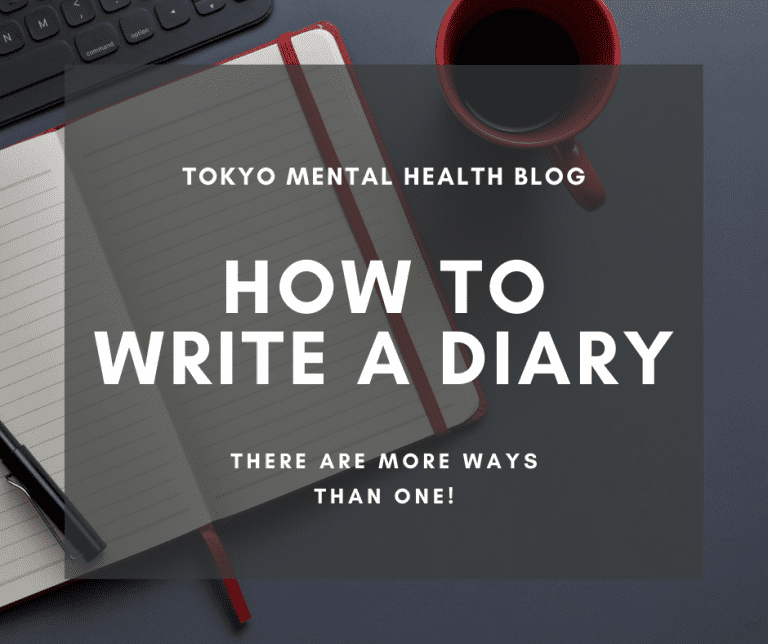- 2022/02/10
- Self Help & Tips

When life gets overwhelmingly busy and stressful, it can be difficult to find the time and the emotional capacity to check in with yourself and how you have been feeling. For many, writing in a diary or journal at the end of a difficult day may bring relief and clarity. For others, the prospect of keeping up with a diary may seem daunting or tiring.
Fortunately, there are a wide variety of ways to use diaries and journals to keep track of and explore your thoughts, experiences, and emotions beyond the typical “blank page” diary. Whether you are more of a visual, creative thinker or are interested in a highly organized approach, finding a journaling practice that is right for you can positively impact your mental and physical health.
Benefits of Writing in a Journal or Diary
Though writing in journals and diaries is an old practice, many of its benefits have stood the test of time. Keeping a diary can help you to:
- Gain more perspective over your thoughts, experiences and actions.
- Express difficult thoughts and emotions that you otherwise are not able to do.
- Develop new ideas for personal and professional projects and goals.
- Recognize patterns in your thinking and behavior that you otherwise wouldn’t notice.
- Organize your thoughts and identify the source of your concerns, stress, and fear.
All of these factors contribute to one of journaling’s most important benefits: stress reduction. Through expressing difficult emotions rather than suppressing them, as well as improving our sense of control, understanding, and organization in our lives, writing in a journal or diary can help manage the amount of stress we experience. Less stress can mean better outcomes for both our physical and mental health, including better sleep, a stronger immune system, and the prevention of anxiety and depression.
Picking the Best Type of Journal for You
Not everybody processes and expresses their thoughts and emotions in the same way. If you have avoided keeping a diary or journal because you don’t enjoy long form writing, there are many other journal formats that give you other options to express yourself and reflect. Among those options are:
“Blank Page” Diaries. These are probably the most familiar kind of journals or diaries. In these, you write entries as frequently as you like to reflect upon your day or whatever is on your mind. This option offers the most freedom and comes with the least structure.
Bullet Journals. If you need more organization or structure in your daily journal, this may be a good option. Bullet journals are often used to record and mark down progress towards personal goals, keep track of your schedule, and track habits and health. This option is less about long-form writing and more about the visual organization of your thoughts, goals and interests. If you are looking to get started, check out this list of bullet journal ideas for beginners.
Art Journals. Pablo Picasso once said, “Painting is just another way of keeping a diary.” However, you don’t have to be an artist to keep an art journal! In fact, art can help put us in touch with emotions and thoughts we aren’t able to verbalize or express otherwise. If you are having difficulty accessing your emotions or putting words to them, try out an art journal.
Gratitude Journals. If you find yourself fixating on negative experiences and emotions, trying out a gratitude journal may be a good option for you. In a study at the University of Indiana, psychology researchers found that weekly gratitude writing, in combination with psychotherapy, resulted in a significant improvement of symptoms among participants with anxiety and depression.
Tips for Writing and Staying on Track
- Don’t pressure yourself to use complete sentences and perfect grammar. If you focus too much on the quality of your writing, you may become too critical of yourself and stop yourself from being able to express yourself easily and freely.
- Start slow. Because journalling can require time and energy, it may not be realistic to expect yourself to write in it everyday. Instead, set an attainable goal to write in it once a week (or whatever frequency is most doable for you). Should you manage this, consider increasing (or decreasing) the frequency as you see fit.
- Write where you feel comfortable. Find a place in your home (or park, or local cafe) that makes you feel peaceful, safe, and in touch with yourself. Take it with you when you travel – you never know when you might have an important thought or realization that you want to write down.
- Switch journaling methods if you get stuck. If you find it increasingly difficult to keep up with your journal or diary, try switching to a different method. Let yourself experiment with new styles of journaling if you feel like another method may suit you better than what you initially started with.
Writing in a journal or diary can be an important tool in helping you to understand and connect with your thoughts and emotions. While that process can be liberating, it can also cause difficult and uncomfortable emotions to rise to the surface. Whether you want help getting in touch with your emotions or want assistance with something that has come up since you’ve started journaling, please don’t hesitate to get in touch with us and book an appointment.